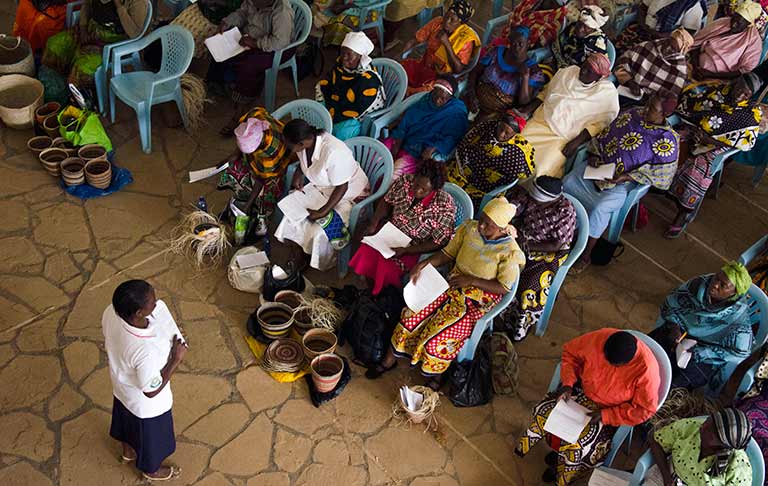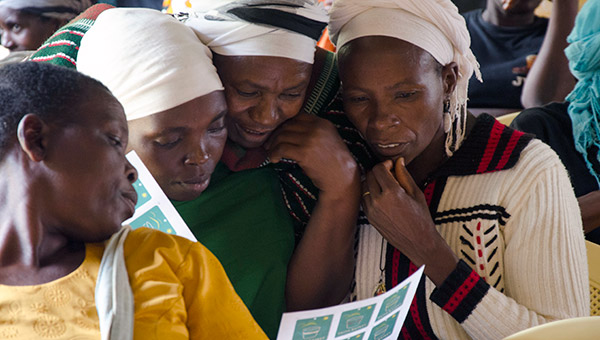Basket Weaving Project in Kenya Gains Momentum
June 29, 2016
WIPO’s multi-step branding project on sisal baskets reached its second milestone during a gathering of more than 400 basket weavers on June 20-24, 2016 in Taita Taveta County (Kenya). The basket weavers came together to establish their association and to formally discuss obtaining a collective mark to develop their regional brand.

During week-long events in two local villages, some 450 basket weavers gathered (300 in Kasigau and 150 in Sechu) for discussions on:
- the makeup of their new association;
- the logo design for their proposed collective mark;
- regulations on the use of the mark; and
- quality standards to be adopted.
With only one exception, all participants were women.

Birth of a new association
Following the discussions, the basket weavers voted by majority to adopt all of the documents necessary to found their regional association and take the project forward. This represents the first step towards the development of the regional “Taita Basket” brand.


The Hon. Eng. Elijah Mwandoe, County Executive for Industrialization, Energy, ICT and Research opened the meeting by proudly referring to the sisals of the region as among “the best in the world” and emphasizing the importance and relevance of the branding project to his county.
The event was organized by WIPO, in cooperation with the Japan Patent Office (JPO), the Japan International Cooperation Agency (JICA), the Kenya Industrial Property Institute (KIPI), the One Village One Product Program (OVOP) Kenya, and the Taita Taveta County Government.
Background
The sisal baskets produced in the Taita Taveta County of Kenya are regarded by many as regional treasures. These unique baskets are produced according to the traditional art by local women who have passed down the skill from generation to generation.
However, up until now, production has been fragmented, with small groups of basket weavers operating independently in their respective villages and assisting each other only informally. Thanks to a WIPO Japan Funds-in-Trust project, these Kenyan women are learning how they can come together and leverage the intellectual property system to protect and promote their products on a larger stage.

